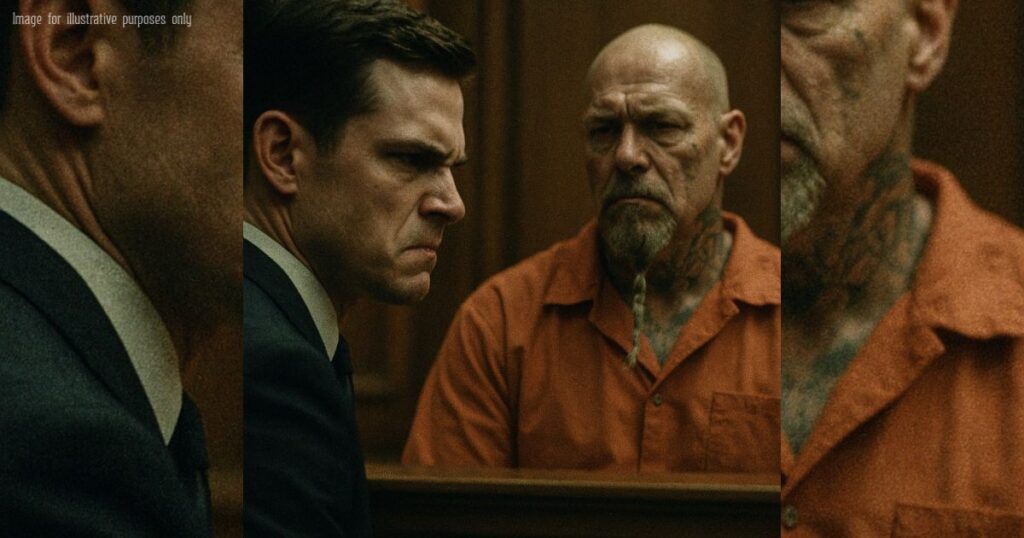The truth hit me like a physical blow. The duffel bag. The bus ticket. The catatonic state. My father hadn’t been kidnapping her. He’d been rescuing her.
He hadn’t been repeating his mistake with my mother; he had been desperately trying to prevent a far worse one. He knew the system—my system—would be too slow.
A wellness check, a report, a detective assigned a week later. By then, Maya would be gone. So he’d acted, using the only tools he had: fear and force.
He hadn’t locked her in a prison.
He had put her in a sanctuary, a place so remote the tiger couldn’t find her, and started the brutal, agonizing process of forcing the poison from her body.
The next morning, I stood to give my closing argument. My suit felt like a costume.
My polished shoes felt like lead weights. I saw the jury, ready to convict. I saw Maya’s parents, waiting for justice.
And I saw my father, watching me, his face an unreadable mask, ready to accept his sentence. Ready to trade twenty years of his life for Maya’s.
“Ladies and gentlemen of the jury,” I began, my voice hoarse. “For the past week, I have presented you with a clear story. A story of a dangerous man who took the law into his own hands.”
I walked toward the jury box, my heart hammering against my ribs.
“I showed you evidence that John Vance broke down a door. That he terrified a young girl. That he held her against her will. By the letter of the law, every word of that is true. By the letter of the law, he is guilty.”
I paused, letting the words settle. Then I turned and looked at my father.
“But we are not here today to talk about the letter of the law. We are here to talk about justice.”
A murmur went through the courtroom. The judge leaned forward, a frown on her face. I ignored them. I walked back to my table and picked up a file.
“What I failed to tell you,” I said, my voice gaining strength, “is what was waiting for Maya Calloway had my father not broken down that door. I have here evidence of a predator named Silas Kane. I have evidence that on that very night, Maya was planning to leave with him. Not for a vacation. But to be trafficked into a life of addiction and exploitation from which almost no one returns.”
I presented the messages, the photos, the bus ticket.
I laid bare the ugly truth.
I explained that my father hadn’t been acting out of malice, but out of a desperate, terrifying love.
A love that knows sometimes the only way to save someone from a burning building is to drag them out, kicking and screaming.
“My father failed my mother,” I said, my voice cracking for the first time. “He tried to cage her disease, and it cost her her life. He carries that failure every single day. And when he saw another child—his child, in every way that mattered—standing on the same cliff edge, he refused to fail again. He broke the law. He broke the law to uphold a higher one: that you do not let a child walk into the fire.”
I looked back at the jury, my eyes pleading.
“The state asked you to punish a kidnapper. I’m asking you to see a savior. The law has no room for this kind of messy, brutal, necessary kindness. But you do. The verdict you deliver today is not just about John Vance. It’s a verdict on what we are willing to do when the system fails. It is a verdict on kindness itself.”
The jury was out for less than an hour.
“Not guilty.”
The words seemed to hang in the air, a physical force. My father didn’t move. He just closed his eyes.
We met on the courthouse steps, the city noise a world away. The years of anger and misunderstanding stood between us like a wall of glass.
“I didn’t need you to save me, Ethan,” he said, his voice rough. “I needed you to understand.”
“I’m starting to,” I whispered.
There was no hug. No easy reconciliation. Healing a wound that deep takes more than a single day.
But six months later, I wasn’t in a courtroom. I was at the Forsaken Saints clubhouse, the rumble of Harleys a constant hum in the background.
I had left the DA’s office. On a table in front of us were the incorporation papers for the ‘Saint’s Shield Foundation,’ an organization dedicated to rapid, direct intervention for at-risk youth.
My legal expertise, his club’s muscle and network. A new system. Our system.
A nervous couple sat across from us, their faces pale with worry about their son. My father leaned forward, his presence filling the room. He didn’t look like a savior. He looked like a sinner, scarred and intimidating.
“Tell us everything,” he said, his voice a low growl. “We’ll get him back.”
And watching him, I finally understood. The world isn’t black and white. It’s a thousand shades of violent, messy gray. And sometimes, in the darkest shadows, you find the most ferocious light.


